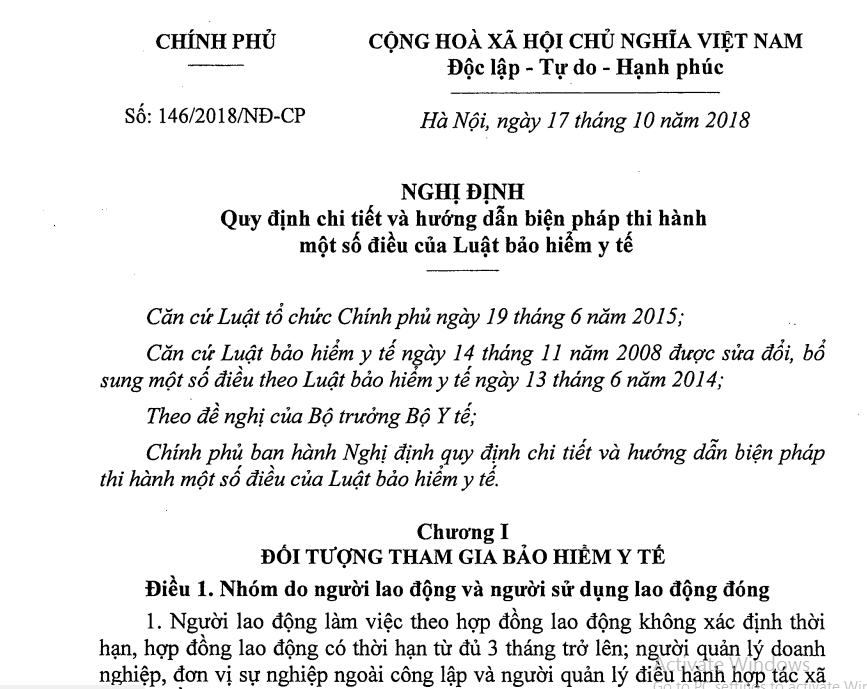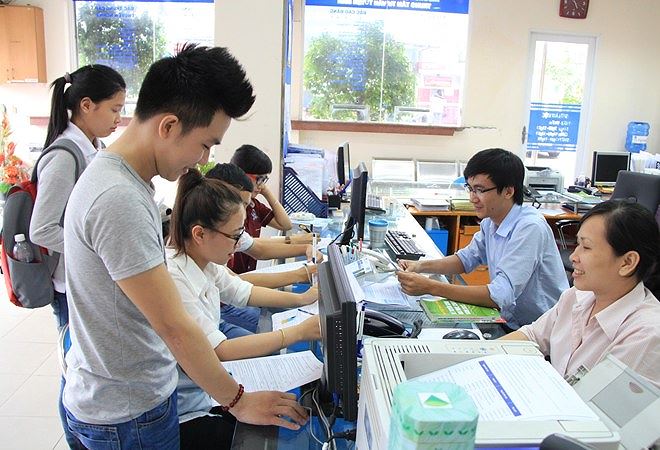Draft Circular guiding some regulations on medical examination and treatment (KBCB) with health insurance (BHYT) for officers, non-commissioned officers, soldiers, and students of the People's Public Security is currently being consulted by the Ministry of Public Security.
According to the Draft Circular, the health insurance (BHYT) contribution rates are regulated as follows:
- Officers, non-commissioned officers in professional tasks; technical non-commissioned officers: contribution rate is 4.5% of the monthly salary;- Non-commissioned officers, conscripts; students of People's Public Security Academy receiving subsidies: contribution rate is 4.5% of the basic salary level.

Officials and soldiers when having medical examinations and treatments (KBCB) under health insurance as per the provisions of Law on Health Insurance (amended and supplemented) and Decree 70/2015/ND-CP, will be reimbursed by the Health Insurance Fund for expenses, including:
- Costs of medical examinations and treatments, rehabilitation, periodic prenatal check-ups, and childbirth;- Transportation costs;- Costs of medical services outside the scope of health insurance such as medications, chemicals, medical supplies, and medical technical services.
Regarding the payment of medical examination and treatment costs as stipulated in Clause 1, Article 11 of Decree 70, specific guidance is as follows:
- For medical examinations and treatments at non-public health facilities, the health insurance fund will cover the costs according to the medical service prices at those facilities, but not exceeding the prices at equivalent public health facilities. The difference is self-paid by the officials and soldiers to the health facilities;- For public health facilities providing services under private investment, payment is based on prices set by the health facilities but not exceeding the approved health insurance payment prices. In cases where socialized medical services are utilized, the difference is self-paid by the officials and soldiers to the health facilities.
Expenses outside the health insurance coverage as stipulated in Clause 2, Article 10 of Decree 70 must satisfy several conditions, such as:
- Officials and soldiers must undergo medical examinations and treatments in accordance with Articles 26, 27, and 28 of the amended and supplemented Law on Health Insurance or in emergency cases;- Medications and chemicals must be allowed for circulation in Vietnam; medical supplies must be authorized for use; medical technical service lists must be approved by competent authorities;- Prices for technical services must be approved by competent authorities; prices for medications, chemicals, and medical supplies must follow the winning bid results as per procurement laws;- When using medications, chemicals, medical supplies, and technical services outside the health insurance reimbursement list for the purpose of diagnosis and treatment, there must be adherence to regulations, professional procedures, appropriate to the disease level and health status of officials and soldiers; the consultation minutes must be confirmed by the head of the health facility and kept in medical records.
Also, according to the Draft Circular, transportation costs to be covered by the health insurance fund must meet conditions specified in Points a, c of Clause 5, Article 11 of Decree 70. Specifically:
- When using the health facility's transportation, the health facility will be reimbursed for round-trip transportation costs, calculated at the rate of 0.2 liters of gasoline per kilometer based on the actual distance between two facilities and the gasoline price at the transportation time. If more than one patient is transported on the same vehicle, the payment is calculated as if one patient is being transported;- When not using the health facility's transportation, the health insurance fund will reimburse the one-way transportation costs for the patient, calculated at the rate of 0.2 liters of gasoline per kilometer based on the actual distance between two facilities and the gasoline price at the transportation time.
It should be noted that the reimbursement rate for transportation in the two cases above applies to transportation by road or regular class rail. For transportation by waterway, the distance must be converted from nautical miles to kilometers. For air transportation, it is applied the same as road transportation.
 Article table of contents
Article table of contents
.jpg)




.Medium.png)
.Medium.png)
.Medium.png)
.Medium.png)
